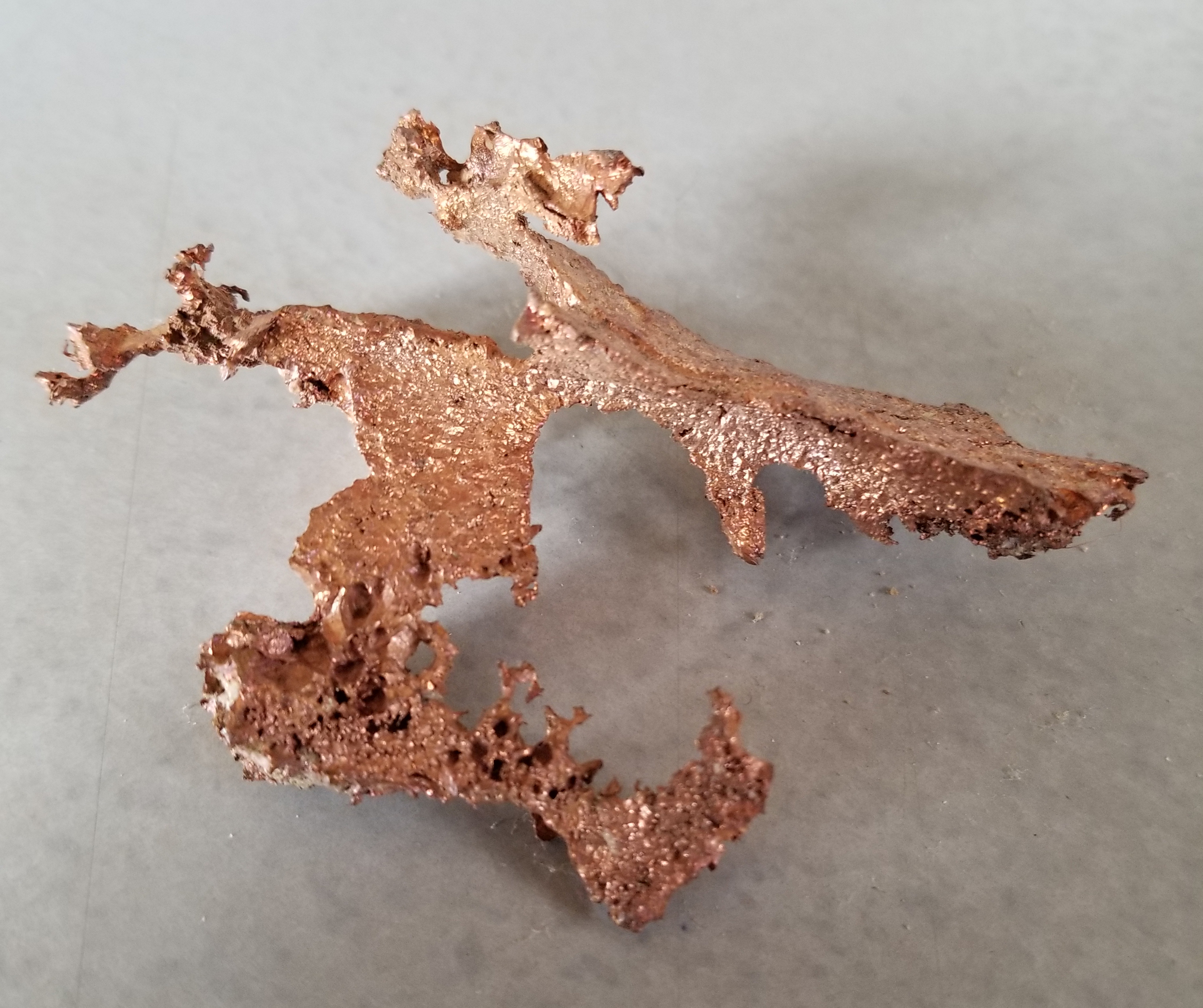I recently visited the North Carolina History Museum for the first time, and encountered an exhibit which presents the aboriginal inhabitants of America’s mid-Atlantic. They lived in this area at least as long ago as 12,000 B.C., and at some time they traded with the copper miners of Michigan’s Upper Peninsula, who were active at least as far back as 5,000 B.C.
I went to college in Michigan’s mining district and knew of the prehistoric miners and that their output got around; Michigan copper has been found in prehistoric jewelry from Central America. But, maybe, it got there because some guy had some copper in his kit and wandered south? Evidence of Michigan copper in the mid-Atlantic, also, suggests organized trade.
This interests me because we know almost nothing of pre-Columbian North America. We know in painful detail what happened to the civilization that was here when Europeans arrived; by any sane reckoning, it should be counted a crime against humanity.
It was the Ojibwe, a subdivision of the Chippewa, who lived in Michigan’s Upper Peninsula from about 1,000 B.C. onward. They were not miners, and have no oral tradition of the people who preceded them. By all accounts, the Ojibwe were peaceful and especially indulgent toward children. Why not? The winters were fearsome, but the forests and waters were generous; there was plenty of room and chow for everyone. They created a religion that met their needs and explained the world they inhabited and made up tales about the Northern Lights — worshiping at the rock outcrop now known as Miner’s Castle.
They did not write, and they did not do significant metalwork; there are few artifacts to tell us about the early Ojibwe, and there is little oral tradition to consult.
And virtually nothing is known of the people who preceded them — the copper miners of 5000 B.C., who apparently traded with tribes from Central America and the mid-Atlantic.
 Copper in Michigan’s Keweenaw Peninsula is encountered in its native state, bright as a fresh-minted penny. It was separated from the rock by heating the rock till it cracked and could be pried from the copper. Carbon-14 dating of the ash enables us to know when the miners were active. We know almost nothing else about them, because everything they used was perishable. Their shelters were probably made of animal hide and wood — and 7000-years later, it’s gone. Whatever tools they used were wood that has disintegrated or stone that is weathered and buried by millennia of sediment.
Copper in Michigan’s Keweenaw Peninsula is encountered in its native state, bright as a fresh-minted penny. It was separated from the rock by heating the rock till it cracked and could be pried from the copper. Carbon-14 dating of the ash enables us to know when the miners were active. We know almost nothing else about them, because everything they used was perishable. Their shelters were probably made of animal hide and wood — and 7000-years later, it’s gone. Whatever tools they used were wood that has disintegrated or stone that is weathered and buried by millennia of sediment.
They are gone, and so is almost every trace of them, and there is little interest or academic reward in studying an obscure and abandoned non-European culture. We probably will never know any more about them except that they once existed.

Geography shapes culture. The harsh environment of the Middle East birthed the Abrahamic faiths, all of them violent, predatory, and imperialistic, and the generally beneficent environment of North America’s upper Midwest led to the creation of mild and peaceful cultures. The Chippewa must have been baffled and appalled by the first Europeans they encountered, and stunned by the cruelty of the imposition upon them of a Middle Eastern belief system having no analog in their experience.
Now, as science and engineering overtake them, the imperialistic Abrahamic faiths are declining as well; not all, certainly, but most of the turmoil in the world arises out of reaction against that fact. Undoubtedly, they will disappear and someday be as obscure and curious as the beliefs of the prehistoric miners. Though it’s an ugly-sounding word that I dislike, the future probably belongs to some flavor of non-ideological Deweyan ‘humanism’ that emphasizes the application of reason to observation in order to know the world and shape public policy. And I incline to think humankind will be better-off when that happens and humanity unites to create a better world rather than dispersing into vengeance-cults bent upon pleasing an Invisible Wizard.
But we’ll be poorer, too, when the Northern Lights lose the romance of the heavens opening to greet the soul of a leader of a peaceful people, as the Ojibwe believed.
